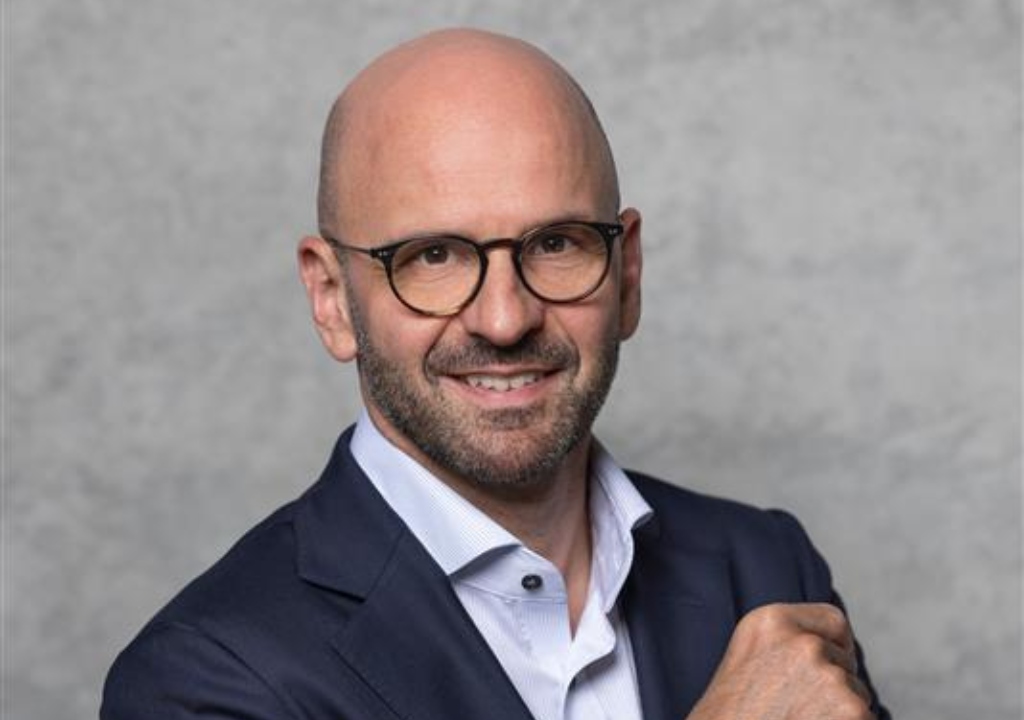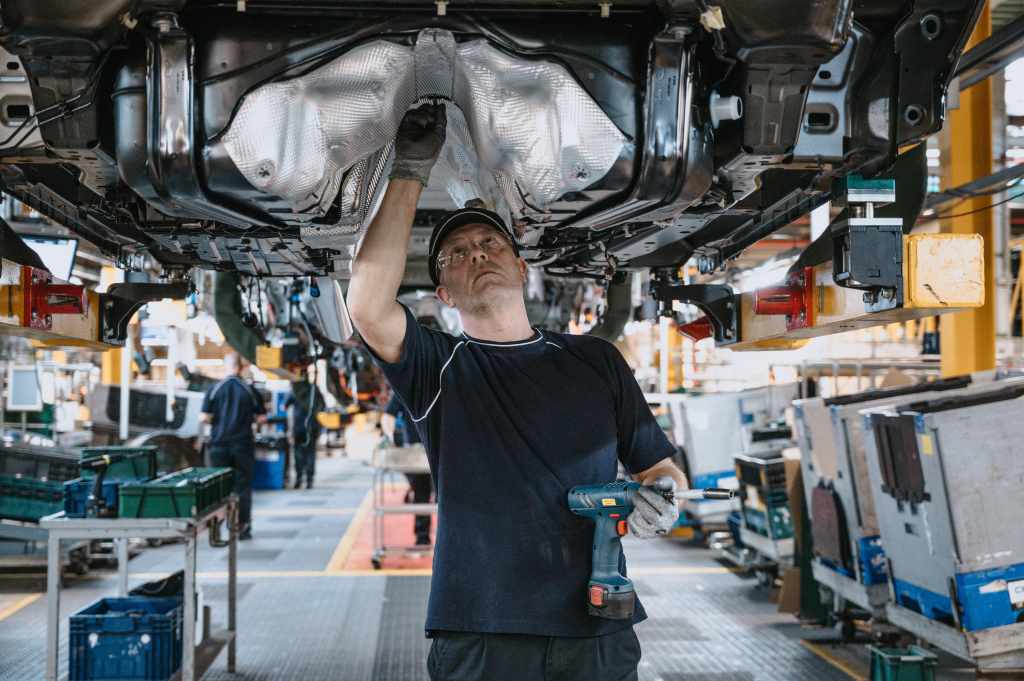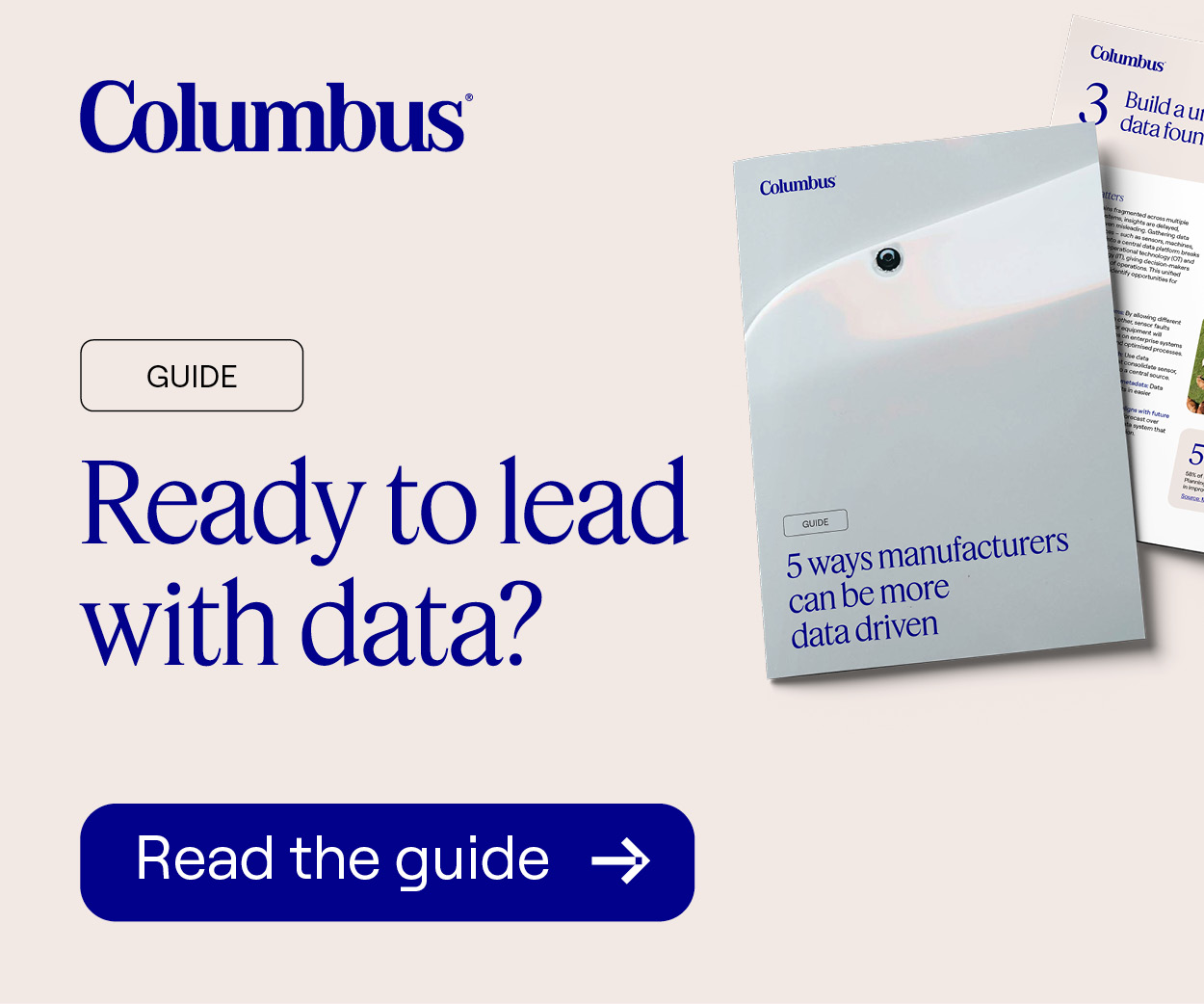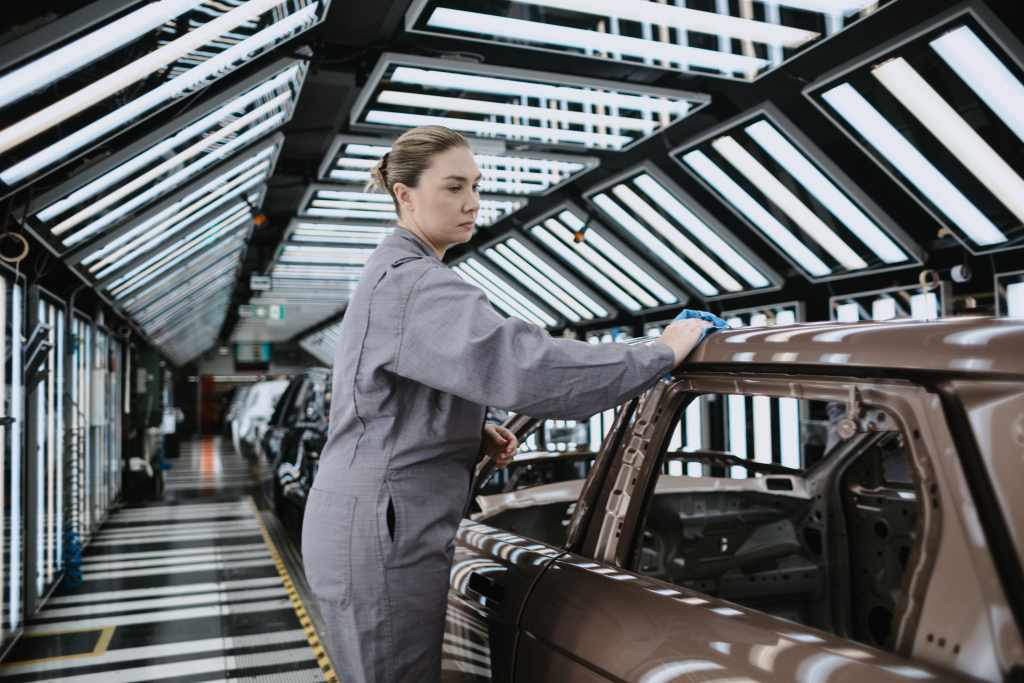In uncertain times, many manufacturing companies are looking at ways to save costs, optimise operations and drive long-term resilience. Automotive is one of those and JLR is using transformation initiatives to power its cost and quality strategies.
Joining JLR in 2023, Tobias Moch is Chief Procurement Officer, overseeing global procurement activities including direct and indirect procurement, supplier quality and development. He operates within the broader industrial operations organisation, which includes procurement, manufacturing, supply chain and planning.
The Manufacturer’s Molly Cooper chatted with Tobias about some of JLR’s transformation projects, including Ex-Works, which focuses on cost optimisation. Here he shares insights into how JLR is navigating industry headwinds through smarter material sourcing, manufacturing innovation and logistics optimisation.
Transformation projects: Ex-Works
Ex-Works is one of the various transformation programmes at JLR that the company is currently working on to navigate industry headwinds. Ex-Works is focused on cost optimisation, which considers all costs at the point of the vehicle leaving the factory. This includes material costs as well as manufacturing, freight and logistics costs.
“Ex-Works is one of the major transformation projects that we are currently running to manoeuvre through the current challenges in the industry right now. But we are also covering areas such as CO2 compliance, customer experience and global market resilience,” said Tobias.
The Ex-Works initiative aims to improve the profitability of JLR, by reducing unnecessary costs across all vehicle programmes. It does this by working closely together with its suppliers, to streamline processes and boost efficiency in their manufacturing. It looks at everything from materials, technical specifications and the supply chains of its suppliers.
“We began this project at the beginning of this year and the programme is currently in its initial phase. The current focus is our MLA (Modular Longitudinal Architecture) platform, the vehicle platform all Range Rovers are built on,” he added.
Staying ahead of the challenges
Tobias believes that JLR has made significant progress with the Ex-Works project in the first six months of it being run, having optimised its supply chain.
“The Ex-Works programme covers a vast number of projects within JLR and with our suppliers to reduce unnecessary expenditure; let me give you one example.
“Currently, we are working with a supplier on their process for how vehicle door components are assembled, stored and delivered to our factory in Solihull. By exploring if the supplier can deliver the frame and the glass separately, we can then look at assembling the doors in-house in our own manufacturing facility.
“This will optimise the delivery and sequencing process while increasing the efficiency on both sides at JLR and our supplier,” explained Tobias.
By doing this, JLR could make a cost saving of around £4.00 per vehicle, which on its own sounds like a relatively small amount, but if you add up all the vehicles over the lifecycle of the programme, it works out to be several million pounds just on the vehicles in this one model line.
JLR is also currently exploring several use cases for its facility in Castle Bromwich, Birmingham, with the aim of bringing in more manufacturing components in-house, vertical integration, consolidating its supply base and sequencing activities which are currently being done by its suppliers.
“We are reviewing our suppliers manufacturing processes. We visit sites and walk the lines of each one of the suppliers to identify efficiencies and waste across the manufacturing processes.
“As well as our own engineers, buyers, and plant staff, we work with our supplier partners on their own ideas, in terms of making the product simpler and easier to produce. This can also be done by using different, more sustainable materials.
“The focus is often on cost efficiency, weight reduction and sustainability, as well as improving processes in the supply chain, and managing all tiers of suppliers in the chain,” he added.

Sourcing the right materials
Procurement plays a key role in helping to deliver long-term sustainability targets, particularly JLR’s carbon net zero aim for 2039. Like many automotive companies in the UK, it is electrifying its products, while reducing emissions from purchased components is also becoming more important.
“Since battery electric vehicles are more energy intensive to produce than traditional internal combustion engine products, we heavily engage with our suppliers on sustainability topics and it’s changed the way we work with them,” said Tobias.
Training is an important area too. JLR focuses on training its suppliers with collaborative workshops and sessions to drive engagement and progress together on lower carbon materials and recycling challenges.
“We’ve also updated our requirements when sourcing new suppliers, to improve transparency across materials and to ensure resilience, but also to promote ethical supply chains, which is important to us. This becomes particularly vital for critical materials like lithium or cobalt used in batteries or rare earth materials used in electric vehicles.
“We’ve recently created an additional department and hired 55 net zero specialists on material mapping and traceability to improve the visibility and transparency in our supply chain and reduce risk,” said Tobias.
JLR is investing heavily in new technology including AI, machine learning and real time analytic tools that help to track materials from their source of origin. This aids in identifying potential supply chain risks and disruptions early but also ensures compliance with new regulations and evolving legislation.
Team collaboration
The way the Ex-Works project works is cross functional, involving teams from procurement, engineering, manufacturing, vehicle programmes and finance across the business.
“We are collaborating cross functionally, not just within JLR, but also with our suppliers within the JLR ecosystem.
“We’ve got nearly 200 dedicated people working on the project. It is key to have aligned targets across each function. We have regular check-ins each day to confirm these targets are being hit and larger internal events, workshops and sessions to keep ideas flowing.
“We encourage everyone to work together across the functions, which also generates innovation and new ideas,” said Tobias.
Future of Ex-Works
According to Tobias, we are living in a VUCA (volatile, uncertain, complex and ambiguous) world, which is an environment that requires a new approach with procurement. As Chief Procurement Officer at JLR, it is Tobias’ vision to build a future-proof supplier ecosystem. This means a supply base that is right sized, resilient, competitive and built on trusted supplier relationships.
“To break that down, the right size supply base is not necessarily about scale or the number of suppliers, it’s about having those that fit best with what we are doing and that will help us deliver our JLR strategy.
“For a supply base to be resilient it means it doesn’t break under pressure, managing the very uncertain, volatile and complex business environment we work in. From my perspective, resilience is about anticipating challenges and disruption, adapting to new situations and bouncing back stronger and more competitive,” explained Tobias.
JLR often talks about QCDIS (quality, cost, delivery, innovation and sustainability) when it comes to staying competitive and leading in procurement. Together with its suppliers it creates value by delivering the perfect experience for its customers, underpinned by trust and transparency. While Ex-Works is focused on reducing the cost element, quality, delivery, innovation, and sustainability cannot be compromised. They remain non-negotiables for JLR when working to procure the best products, systems, and solutions with suppliers.
“Our suppliers providing transparency across their supply chains is not just a box ticking exercise, it goes above and beyond for us as a compliant business behaviour. It shows us they have a strong and clear commitment to social and environmental responsibility and are well aligned with our own business values.
“It’s important that within the Ex-Works project we have a clear commitment and plan for the sustainability management of our suppliers,” said Tobias.
For more articles like this, visit our Leadership channel.








